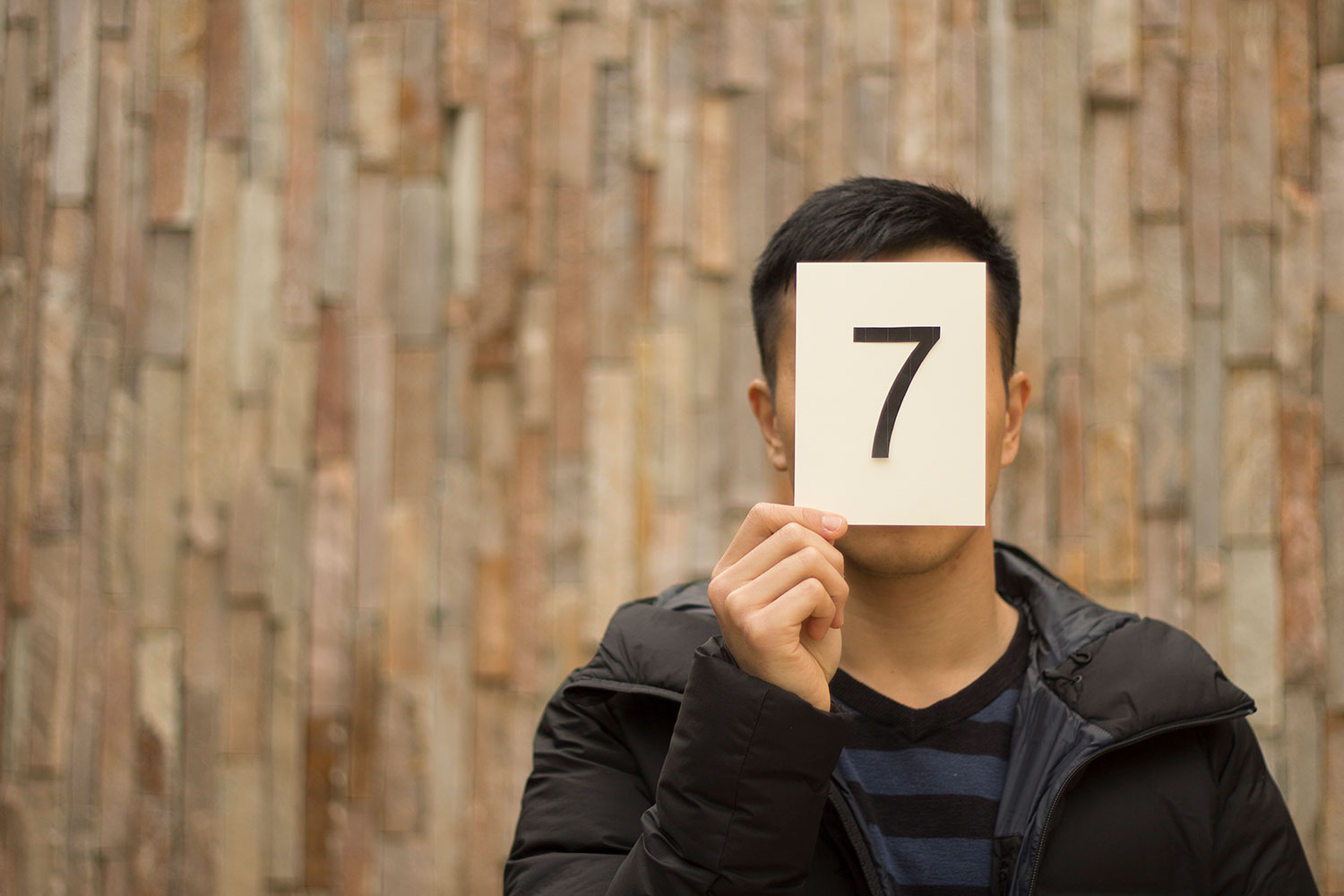
As an Asian American, I often feel selfconscious or distrustful of my feelings of happiness. I never wanted to come across as happier than others because that could make me seem insensitive or noncommunal.
It reminds me of my first few years of campus ministry when I led a predominately Asian American leadership team. Whenever I would ask how we were doing on a scale of 1 to 10, the team would only respond with answers ranging from 2 to 7.
If someone started with a 2, meaning they were having a hard time in life, I would feel guilty for saying I was a 7. How dare I feel happy when those around me are suffering? How dare I betray the Asian American value for communal wellbeing? And apparently, my Asian American leaders were on the same page.
I wasn’t able to name this distrust of joy until later, when I served Black students in InterVarsity’s Black Campus Ministries. The leaders would answer the same question with, “I’m a 10, because God woke me up this morning.” “I’m a 9.” “I know you said 1 to 10, but I’m an 11.” Or, my favorite: “I’m a 2 but I’m rolling like an 8.”
Their answers confused me at first. I asked my mentor, a local Black pastor, “I don’t get it. I know these students. Some of them are going through really hard times — how can they say they’re at a 10?”
He reassured me, “Wendy, of course they’re going through tough times; the assumption is that everybody’s struggling with something. But we don’t have to let these struggles keep us down.”
So, in a way, the 10s and even 11s were not ignoring the reality of suffering but functioning as a word of encouragement to the group, saying “I’m choosing to be joyful today, and to not allow my sorrows to keep me from continuing to be grateful to God.”
As I’m facing one of the most painful periods of my life, that has proven to be far more difficult in practice than I had previously thought. In three months I have cried more than throughout all my previous 12 years of campus ministry. I remember getting off the phone with a fellow minister who I’ve known and worked with for 14 years; she had just resigned — not because of a change of calling or a lack of desire to do campus ministry, but because of disagreement with our organization’s policy on human sexuality. She and I spent much of the call just weeping.

I felt devastated. All the plans and hopes I had for her growing in the ministry and in leadership in the organization were crushed. With each subsequent resignation call from other staff, I only felt more despondent. I remember asking God if I really had been called to this work, because if I was, why was everything I had tried to build falling apart?
What kind of joy was Paul talking about when he said to rejoice in our sufferings? Frankly, if my definition of joy is feeling happy, then it would be nearly impossible for me to access joy during such a difficult personal time in my life.
Of course, I still have moments of rich happiness, such as hugging my kids as they come home from school or hiking through the orange and red-leafed trees in Acadia National Park. But whenever I return to the reality of my work, I feel the same sense of desolation. What kind of joy could I experience in this specific context?
I tried to think back to the times I’ve experienced joy in the midst of suffering. I used to live in Lawndale, a Black neighborhood in Chicago with an average income of about $5,000 a year. I found joy while singing in the choir. We would sing these lyrics, “Weeping may endure for a moment but joy cometh in the morning light.” I would sing this line at the top of my lungs, clapping and rejoicing with the rest of the choir.
Even though the reality of our context included suffering and weeping, we found joy in our hope that God would come through for us. Here, I discovered joy not as a feeling of happiness but as a source of strength and resistance. This choir introduced me to a theologically rich experience of joy.
I found this same joy even in the midst of suffering in Payatas, a slum in Manila, Philippines, built around a city dumpsite. I remember hanging out with orphaned and abandoned youth in Payatas and laughing together at a practical joke they just played on me. Our laughter and deep enjoyment of each other’s presence was an experience of joy as a form of resistance. In the face of suffering around us, in the face of the unjust reality that their home was built on actual garbage, we were going to choose joy. We were going to choose to embrace our shared humanity by laughing together at my gullibility.

How does my family express joy in the midst of suffering? We make dumplings. My brother wakes up early to start cutting the chives and the napa cabbage. My dad is in charge of making the dough because it is a pain and no one else wants to do it. I sous chef here and there until all the ingredients are ready. Then, we all stand around the kitchen table with flour and Chinese rolling dowels in hand. My kids and I start rolling out the wraps. My sister and mother attempt to make my kids’ misshapen wraps fit around the meaty filling.
As we roll and wrap, we tell stories. We tell stories about how my brother and I used to make candy-shaped dumplings that tasted terrible because, according to my dad, “The Chinese version of the dumpling took 2,000 years to perfect. You think you can make it better?” We tell these familiar stories and remind one another that we know and love one another. We are here.
When we eat the dumplings, we experience the delight of the flavors and the joy of making them together. We are reminded that we have been together through many experiences of suffering, through the death of beloved family members, through discrimination and job losses, and through heartbreak. After we eat to our hearts’ content, each person takes home a bag of about a hundred frozen dumplings to carry them through the next few months.
We are reminded that we have been together through many experiences of suffering.
So all my memories of shared joy with others, like the frozen dumplings in my freezer, help me to face each day. The joy I had with the Black college students reminds me to be strong. The joy I found in the Lawndale choir reminds me to have hope. The joy I had with the Payatas kids reminds me to celebrate my weakness and humanity. And finally, the joy of my family’s dumplings remind me that I am never alone.
As I walk through the final weeks of my current job, as I say my tearful goodbyes to a ministry and coworkers I love, the joy of these communities carry me through. So take that — feeling of lostness and despair — I’m a 10 today. Make that an 11.

Wendy Hu-Au, MDiv, is the executive pastor of Metro Hope Church in Harlem, New York City. She is a 2nd-generation Taiwanese-Chinese-American originally from Santa Barbara, California. She is mother to two biological children (ages 9 and 7) and one foster baby (just turned one). Currently, her family of five enjoys imagining themselves camping, playing soccer, or rock climbing while in reality they stay at home to protect the lives of the most vulnerable in their community.
Find her on Twitter @wendeeyah
